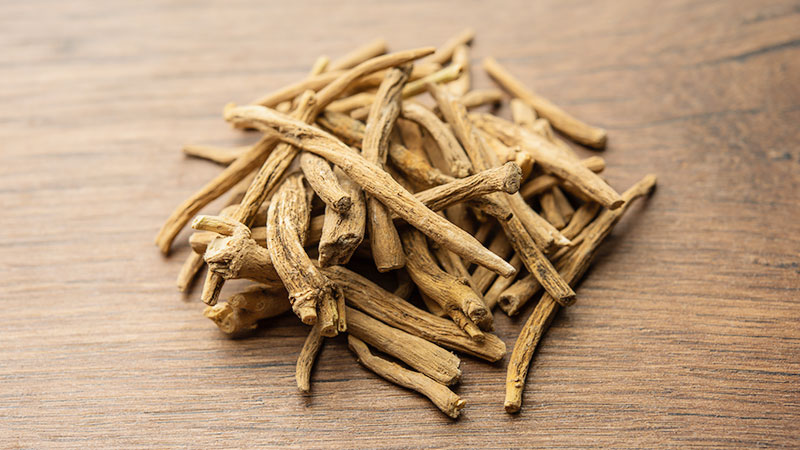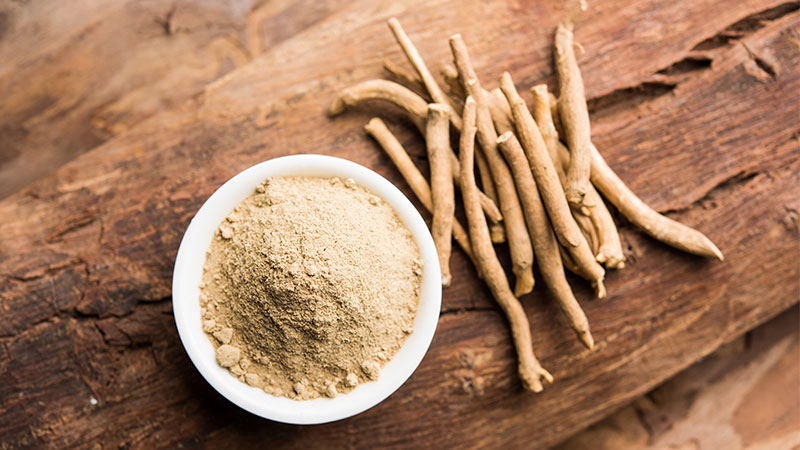
Hey there! Let’s talk about ashwagandha, a super cool herb from Ayurvedic medicine that’s grabbing everyone’s attention these days.
You might know it as Indian ginseng or winter cherry. This amazing adaptogen has been around for thousands of years, helping people boost their energy, relieve stress, and sharpen their focus.
Its name means “smell of the horse,” which gives a nod to its reputation for enhancing strength and vitality.
Recent studies have been showing off ashwagandha’s impressive benefits, like its anti-inflammatory and stress-busting effects.
It could be a great ally in enhancing athletic performance, improving sleep, and lowering cortisol levels to help handle stress and anxiety.
Plus, it might also support your thyroid and respiratory health, which aids in keeping you in tip-top shape.
We still need a bit more research to back up some claims, but the growing pile of evidence is pointing towards ashwagandha as a fantastic natural remedy.
Its ability to help keep us feeling youthful, both mentally and physically, is something that’s got both researchers and health buffs quite intrigued!
1. Reduces Stress and Anxiety
Ashwagandha can significantly alleviate stress and anxiety. Multiple clinical trials back this, highlighting reductions in anxiety-related behavior.
They suggest its effectiveness in normalizing cortisol levels, a stress-linked hormone. Participants in these studies experienced notable declines in anxiety after taking ashwagandha.
For instance, daily doses between 240 mg to 1,200 mg led to decreased perceived stress. It even helped ease chronic stress’s effects by balancing inflammatory indicators. As a result, this herb stands out as a natural way to combat stress and anxiety.
2. Helps Control Blood Sugar and Fat Levels
Ashwagandha may stabilize blood sugar in healthy and diabetic individuals. It works by improving insulin sensitivity, thus modulating sugar levels.
Several studies indicate its potential to lower triglycerides and cholesterol, contributing to heart health.
Participants taking ashwagandha saw reduced fat levels, possibly leading to healthier body compositions.
Researchers attribute these effects to the herb’s potent antioxidant properties, which combat oxidative stress—a key factor in metabolic disorders. Regular intake could support overall metabolic wellness.
3. Builds Muscle and Strength
Ashwagandha can enhance muscle size. Studies indicate it’s effective in promoting muscle growth among active individuals. Regular intake boosts testosterone levels, a hormone crucial for muscle development.
They also find that this herb reduces fat percentage, leading to improved body composition. Men participating in ashwagandha trials show significant strength increases.
Incorporating it into a fitness regimen could further amplify these benefits. Participants have experienced greater exercise endurance and recovery times.
4. Enhances Sexual Health for Women
Ashwagandha significantly boosts female sexual wellness. Studies show that taking 300 mg twice daily for eight weeks increases lubrication, orgasm, and arousal scores.
Many women report improvements on the Female Sexual Function Index. Compared to a placebo, participants experienced more favorable sexual encounters.
Ashwagandha’s ability to reduce anxiety and improve sleep further supports sexual health. Researchers also note its role in balancing hormones and fighting infections, promoting a healthy reproductive environment. The herb’s natural properties make it beneficial for women’s intimate health.
5. Promotes Fertility and Increases Testosterone in Men
Ashwagandha consumption leads to a 147% increase in testosterone, outperforming placebos. This herb notably boosts sperm concentration and motility in men with normal sperm counts.
Administering ashwagandha to infertile men significantly enhances sperm quality by balancing reproductive hormones. In a study, 14% of male patients’ partners conceived post-treatment.
Testosterone spikes as high as 180 ng/dL have been recorded, which may also reduce body fat percentage. While promising, further research is needed to substantiate these benefits fully.
6. Improves Focus and Memory
Numerous studies show ashwagandha enhances cognitive abilities, including memory and focus.
Participants taking 600 mg daily experienced significant improvements in attention span and memory tests, outperforming placebo groups.
Certain compounds in ashwagandha have antioxidant effects that support brain health. Also, a research group noted improved reaction times in cognitive and psychomotor evaluations.
Such results indicate ashwagandha may benefit those with cognitive decline or no impairments, making it a promising supplement for mental sharpness.
7. Supports a Healthy Heart
Ashwagandha plays a crucial role in maintaining cardiovascular well-being. Several studies highlight its efficacy in lowering cholesterol and triglyceride levels.
A reduction in these factors can significantly decrease the risk of heart disease. Research shows that it enhances antioxidant properties, protecting the heart from oxidative stress.
This action may prevent or slow the progression of atherosclerosis. Participants taking ashwagandha enjoyed improved heart health, showcasing its potential as a natural option for a heart-friendly lifestyle.
Potential Drug Interactions

Although ashwagandha offers numerous health benefits, it’s important to consider potential interactions with certain medications. Anyone taking medications should consult with their healthcare provider before incorporating ashwagandha into their routine.
1. Antidiabetes Medications
Ashwagandha may lower blood sugar levels, so it can interact with antidiabetes medications like metformin and insulin.
This interaction could enhance the effect of these medications, potentially leading to hypoglycemia. It’s crucial for individuals on such medications to monitor their blood sugar closely and discuss any changes with their doctor.
2. High Blood Pressure Medications
People on high blood pressure medications, like beta-blockers or ACE inhibitors, may experience intensified effects when taking ashwagandha.
The herb might lower blood pressure further, increasing the risk of hypotension. Regular blood pressure monitoring is recommended, and any adjustments should be made under medical supervision.
3. Immunosuppressants
Those taking immunosuppressants for conditions like autoimmune diseases or after organ transplants should use caution.
Ashwagandha might boost the immune system, possibly reducing the effectiveness of immunosuppressive drugs like cyclosporine. Consulting with a healthcare provider is essential before adding ashwagandha to the regimen.
4. Sedatives
Ashwagandha has calming properties that can add to the effects of sedatives such as benzodiazepines and barbiturates.
This combination might lead to excessive sedation or drowsiness. People considering this herb should be aware of their overall sedative load and discuss it with their healthcare provider.
5. Thyroid Hormone
Interaction with thyroid hormone treatments like levothyroxine is possible since ashwagandha can influence thyroid function.
It might enhance the production of thyroid hormones, leading to an overactive thyroid, especially when combined with hormone replacement therapy. Monitoring thyroid levels and adjusting dosages under clinical guidance is key for safety.
Ashwagandha Side Effects

While ashwagandha is generally well-tolerated, some individuals may experience mild side effects. Understanding these effects helps in making informed decisions about its use.
- Indigestion: Some people experience discomfort such as indigestion when taking ashwagandha. It may occur as the body adjusts to the herb.
- Nausea: Nausea is another side effect reported by a few. This sensation might fluctuate depending on dosage and individual tolerance levels.
- Vomiting: A small number of users sometimes face vomiting as a reaction. Monitoring dosage can help mitigate this response.
- Diarrhea: Ashwagandha might occasionally cause diarrhea. Adjusting the dose often alleviates this issue.
- Constipation: Instances of constipation have been observed, especially at higher doses. A participant in a study noted this side effect more with 1,200 mg daily.
- Itchy Rash: An itchy rash may develop, although it’s rare. Such skin reactions are often temporary and manageable.
- Lack of Appetite: Some users report a reduced appetite. This effect often varies and may not occur with everyone.
